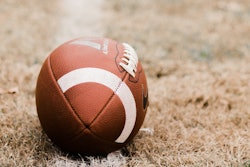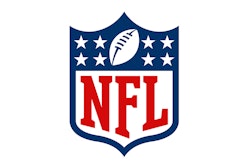All Rights Reserved
Copyright 2018 Portland Newspapers Jul 31, 2018
Portland Press Herald
BRUNSWICK — When freshman Darius Minor collapsed and died while participating in a supervised University of Maine workout last Tuesday, the loss was felt in college football programs across the state.
At Husson University, the coaches were in a meeting when the news broke.
"Devastated is not a strong enough word to describe how we felt," said Gabby Price, Husson's head coach. "A lot of us cried."
College football deaths are rare — from 2000-16, an average of two NCAA football players died per season, according to the National Athletic Trainers' Association — but when they happen close by, they're magnified.
"I've heard of situations like this in the past," said Jack Cosgrove, the former UMaine coach who is entering his first year as the coach at Colby College, "but never so close to home. That really gets your attention. It's one of ours, a young man who wore the blue of the University of Maine."
Cosgrove and Price were among the head coaches speaking Monday at Bowdoin College in the 12th annual Kick-Off Luncheon put on by the Maine chapter of the National Football Foundation.
J.B. Wells of Bowdoin and Chris McKenney of Maine Maritime Academy were there, as were first-year coaches Malik Hall of Bates and Mike Lichten of the University of New England, which will field its first varsity team this fall.
UMaine Coach Joe Harasymiak was not present. He was traveling to Orange, Virginia, with assistant coach Matt Birkett to attend the services for Minor, which began Monday with a candlelight vigil.
The Black Bears were represented at the luncheon by Jon Lynch, the director of sports performance, more commonly referred to as the strength coach.
Lynch was supervising the workout, which involved pushing a weighted sled, when Minor died. After one repetition, the players were taking a four-minute water break while Lynch was explaining what the next drill would be.
According to school officials, Minor tapped Lynch on the shoulder and said he felt like he was going to pass out. Then he collapsed and efforts to resuscitate him by Maine's training staff and first responders were unsuccessful. His cause of death is still unknown.
Asked Monday if he could have done anything differently, Lynch said, "You know, I'm not going to lie. It's not something that hasn't crossed my mind. But at the end of the day my job is based off scientific principles. And, so, looking at the programming that we had, certainly it wasn't something that we expected to happen."
Minor's death occurred during the third week of the summer program. All the players had participated in the drill before, said Lynch, who is in his third year at Maine.
"This was nothing new," he said. "This was one of the things the last two years the freshmen had done."
The tragedy has caused Lynch to wonder about one thing: "As a strength and conditioning coach, one of the things that you really have to have in place before you can get anything done is that the players have to trust you, believe in you and know that you care. And so for me, I don't know that this incident has affected that, but that was the first thing that crossed my mind — how are the players going to see me and my program after that?"
UMaine's players report Tuesday and have their first practice Wednesday.
Maine's other college coaches — all from the Division III level — said the safety of their players is paramount.
"I know for a fact, at our place, every activity we have had, trained professionals are always on site," said UNE's Lichten. "We're very, very, probably over-cautious over the well-being of our student-athletes. Their well-being is our No. 1 priority every day."
Cosgrove and Bowdoin's Wells said that might not have been the case decades ago, when coaches often used conditioning drills as punishment.
"If you were talking 20, 30 years ago, when it was two-a-days in the hot sun and guys doing things they shouldn't be doing, I'd say you would have to check yourself," said Bowdoin's Wells.
"But I know coaches in Maine are doing it the right way. They follow the guidelines."
The NCAA eliminated double sessions a year ago and has put in place numerous guidelines for the safety of its athletes during summer workouts.
"I just don't know how much more can be done," said Cosgrove.
Mike Lowe can be contacted at 791-6422 or: [email protected]
Twitter: MikeLowePPH
Read More of Today's AB Headlines
Subscribe to Our Daily E-Newsletter
Terms and Conditions Privacy Policy



































